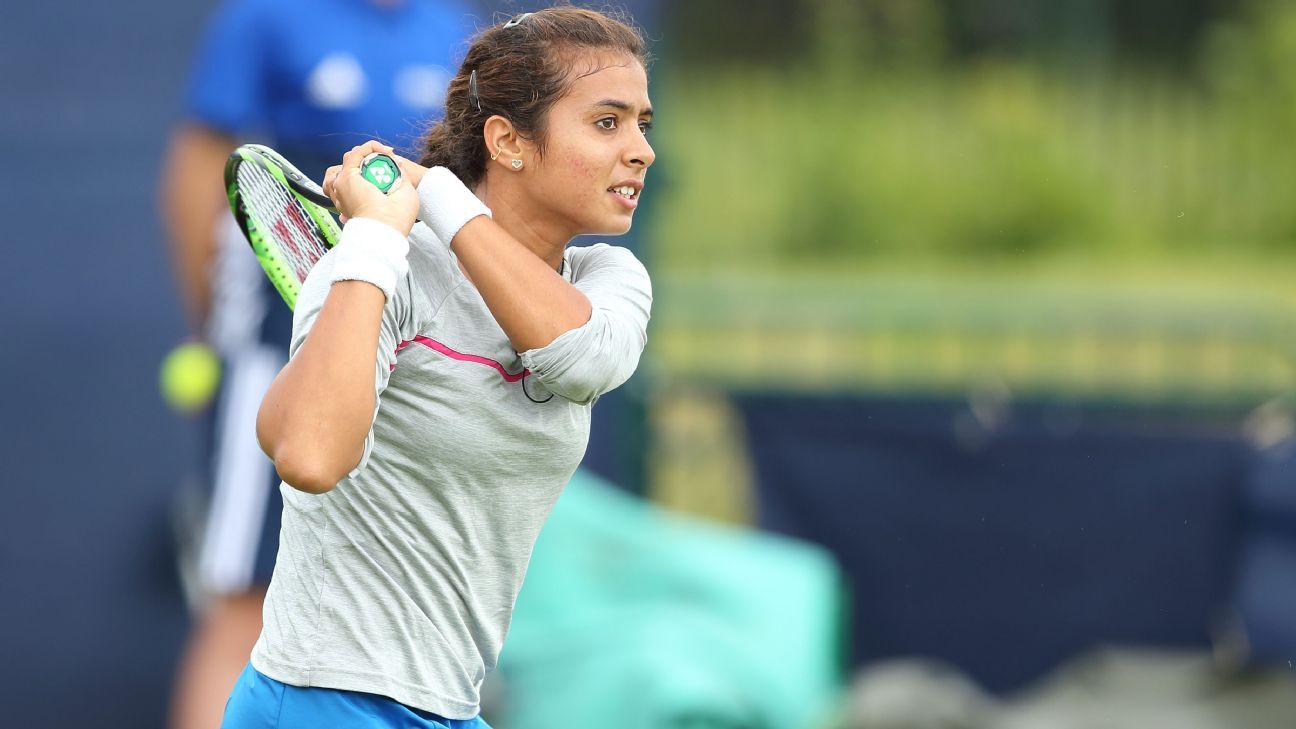Hitting against windows, walls, doors, upturned beds, mattresses, and just about anything that can pass off as a surface. Daily testing, officials stationed along hotel corridors 24×7, alarms fitted at emergency exits to monitor movements and any breach of regulations drawing as much as $20,000 in fines and criminal sanctions. It’s a weird, wacky universe inside the Australian Open bio bubble.
India’s Ankita Raina, the 119-ranked women’s singles player too inhabits this world, and is waiting in the wings – one among 12 eligible for lucky loser spots, who’ve been flown to Melbourne from Doha and Dubai to replace any withdrawing main draw players at the year’s first Grand Slam.
A total of 72 players have been thrown into hard quarantine (solitary confinement, no housekeeping and no stepping out of their respective rooms for 14 days) after co passengers on three chartered planes tested positive, while remaining players are allowed up to five hours of training every day. Seven Covid positive cases have been reported so far, which includes two players.
Ankita is relieved to not be among the 72, living out a relatively less stern quarantine for the next fortnight. She is hitting on courts and off walls. She is also chasing history and a sliver of luck to become the first Indian since Sania Mirza in 2012 and only the third from the country overall to feature in a Grand Slam women’s singles main draw. Nirupama Vaidyanathan was the first from the country to do so at the 1998 Australian Open.
“I have my traveling coach with me (from the Hemant Bendrey academy) and we both were prepared for this,” says Ankita, who arrived in the Australian city over the weekend, “We even packed in ready-made Indian gourmet food, keeping in mind the 14-day quarantine period. Mentally, when we left for Dubai, we were ready to be in Melbourne.”
Lucky losers are picked from among the pool of players who lose in the final round of qualifying. They are at hand to fill in for those pulling out of the main draw based on their rankings. Main draw singles players withdrawing before the draw receive 50 percent of the first-round prize money, while the remaining 50 per cent goes to the lucky loser replacing him/her. Ankita, who lost in the third round of qualifying to Serbian Olga Danilovic, will know the fate of her Grand Slam debut ahead of the February 4 draw.
Players being up in arms over the iron-clad protocols has commanded headlines over the past few days. The reported breaches are comically bizarre. A warning been handed to a player for opening his door to make conversation with a training partner in a room down the hallway, while another was found flirting with danger by taking a stroll in an unmanned hallway. On being spotted and pulled up, the player sheepishly offered: “it just felt great to be outside!” Players have been offered the option of using a food delivery app to order in meals if they aren’t happy with the hotel food, an option many are availing.
Ankita is not complaining yet. “I haven’t had issues with the food yet. Quite honestly, traveling, competing and living in bio-bubbles since last year maybe got me used to it. I’ve got tested more than 40 times, even on my birthday last week in Dubai.”
More than the cloistered physical existence, relentless tests and the latent fear of testing positive, the mental demands – yanking one’s mind from eight months of ennui and plonking it smack in competition mode, can be vastly more challenging. After losing at the French Open qualifying last year, Ankita met WTA psychologist Caroline Zadina in Paris. She circled back to her for help when competitions began stirring to life in the middle of last year.
“It was taking me time to pull myself into the match zone. It’s been really helpful to work with Caroline because it was difficult to resume playing on the tour post the pandemic. I’m glad I met her during that period. In Pune as well, I’ve a psychologist – Debashree Marathe – who I work with and it was very helpful when India was in lockdown, especially because we couldn’t practice or train outside.”
Ankita’s first memory of watching a Grand Slam match was the 2004 Wimbledon, when a 17-year old Maria Sharapova took out Serena Williams in the final. “Serena and Venus matches have always been my favourite and also the one when Sania (Mirza) played Serena,” she says, “I watched the Australian Open for the first time when I was only 14. I happened to be in Melbourne then for the Asian Masters.’
Though she doesn’t frequent social media platforms, updates on piling number of positive cases among the entourages at the Australian Open reach her soon enough, says Ankita. She’ll be counting on withdrawals to worm her way into the draw.
For now its 19 hours trapped inside her room every day, hitting against the wall and waiting for her turn.
